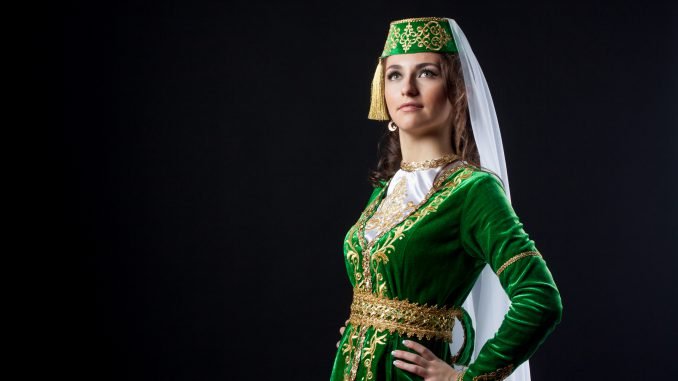
What are the facts that you wish everyone in Lithuania knew about the Tatar Community in Lithuania?
I wish all knew that the Lithuanian Tatars is a very unique ethnical minority in Lithuania which hunkered down in the Grand Duchy of Lithuania in the 14th and 15th centuries, i.e. 600 years ago. I want all to know that Tatars have not lost what makes them so unique – their customs and the traditions. In the last Lithuanian Population and Housing census in 2011, 3,225 persons declared the nationality of Tatar as theirs.
Do you believe the Lithuanian Tatars are strong enough, viable enough, and, excuse my bluntness, procreative enough that the community-and ethnicity- does not go extinct one day?
I believe that our community has been at the peak point of its viability and activeness. I can mention that recently a monument commemorating Vytautas Magnus, the ruler of the Grand Duchess of Lithuania during 1398-1430, and the 600th anniversary of Battle of Žalgiris, was built in Raižiai, оne of the oldest Tatar settlements in Lithuania, with one of the most pronounced mosques built in it. The opening of the monument was a big event and we’re proud that the name of Raižiai was being mentioned all over.
Speaking of the Tatar events, the annual Sabuntuy festival (according to Wikipedia, it is a Bashkir, Tatar and Idel-Uralian summer festival, that dates back to the Volga Bulgarian epoch. At first Sabantuy was a festival of farmers in rural areas, but it later became a national holiday and now is widely celebrated in the cities) luring in big crowds from all over is worth mentioning first.
It must be a big thing, taking in account the community’s size, to have a viable youth community.
Sure it is. We certainly value the Tatar seniors’ guidance, but, indeed, we are the only Lithuania’s Tatar youth representing the community, “Duslyk”.
Can you take us back to the foundation of the community?
Well, the creation of such a community was nothing out of the blue, and with the strengthening of the community there was necessity to set up an organization that would diligently represent the youth and would seek stronger communication within it. I hope the leadership of “Duslyk” has been up to the expectations of the grassroots members.
How scattered, country-wide, is “Duslyk”?
Like the young Tatars’ parents and grandparents, the community encompasses nearly all Lithuania,- reaches out as far as Visaginas and Klaipėda, but its strongholds are local branches in Vilnius and Alytus.
There are around 250 members listed in our organization, according to the last census.
Does anything the word Duslyk mean in your language, which is if I am not mistaken a dialect of the Turkic language?
The word means friendship and unity.
What are the goals that you aim to achieve while at the helm of the Tatar youth community?
The key tasks are the following: getting together all young Tatars living in Lithuania, taking over the ancestors’ live experience and culture and learning as much as possible about the nation and, certainly, promoting the ethnicity so that ever Tatar would be proud of being Tatar!
I strive to lay out all the necessary conditions while implementing the tasks. Specifically, I am in charge of organizing Tatar youth jamborees, various events and so on.
What is your take on the Lithuanian Ethnic Minority Law? Most importantly, does it allow you realize your ethnic and cultural needs?
The amended law draft has stalled in the parliamentary chambers since 1 January 2010. A new draft is still being drawn up.
Does “Duslyk” keep in touch with Tatar communities in other countries?
As a matter of fact, the young Lithuanian Tatars maintain strong ties with young Tatars in Belarus, Latvia, Poland, Estonia and Tatarstan. We work together on a number of our joint events, like the Baltic States’ Sabantuy festival and European Tatar youth’s forums.
I believe it is extremely important to share the different experiences we have and learn something new from our fellow countrymen, as the single goal is to make sure the Tatar spirit lives forever and joins us.
How do you realize your ethnic identity in Lithuania? Can you, please, mention some of your newspaper and major mosques?
Maintaining and cherishing the traditions we’re proud of is crucial in securing the ethnical individuality. I’d like to mention our newspaper “Lietuvos totoriai” (Lithuanian Tatars) and all those mosques and temples that help us realize the ethnical identity in our lives.
Can you mention some most outstanding Lithuanian Tatars?
I like the adage that only a nation with a past can have a future. I’m very happy that my compatriots – Lithuanian Tatar Union’s chairman Adas Jakubauskas along with Galim Sitdykov and Stanislav Dumin – have published a two-volume book, “Lithuanian Tatars in history and culture.” The book includes biographies of famous Tatars’ lives.
Can you recommend a good place for tasting Tatar dishes, or enjoying a Tatar song and dance?
I’d suggest that everyone swing by our Sabantuy festival or an event, which are full of the Tatar folklore.
I really would like to encourage all to follow the Lithuanian Tatars’ societal life and participate in our events. I’m looking forward to seeing everybody in them!
Edited by Paul Moriarty

Be the first to comment